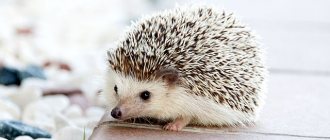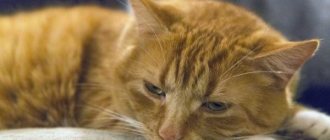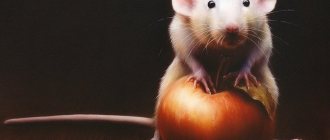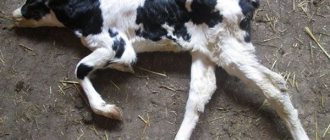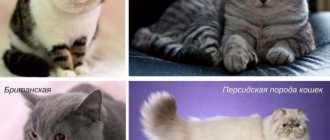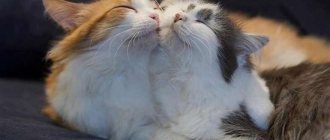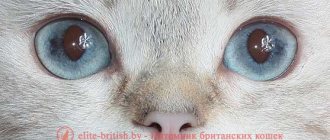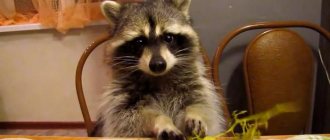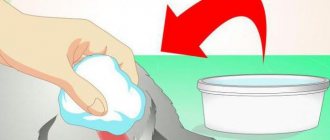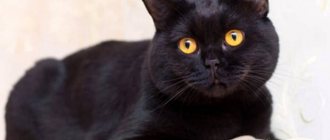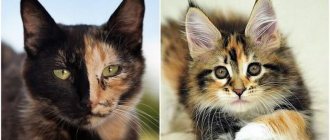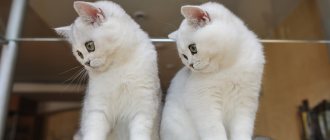BRITISH KITTENS, CATS, CATS CARE, FEEDING, NUTRITION: RULES FOR BRITISH
British cats, whether cats, cats or kittens, need daily care and feeding (nutrition). This needs to be done correctly, because this is not a newly acquired toy, but a small living creature. You need to take the care and feeding of British cats seriously. It must be remembered that this is a purebred animal, and one might say “artificially created” by man. The immunity of all purebred animals without exception is very weak. And the fact that a barn cat is considered normal is not suitable on the menu of a British kitten.
Recommendations from veterinarians
The British look luxurious and are the pride of their owners. But due to improper nutrition, a pet can quickly lose its luxurious appearance and even get sick. The British really need proper care and proper nutrition, so those who do not have enough time for a pet should not get such an animal.
- The diet must include meat. Cats are predators, even if their breed is created by man. Without meat, the British body will not develop normally. Only premium or super-premium ready-made food contains meat; you should not expect much from economy food.
- Along with meat, porridge, boiled vegetables, and more are prepared.
- All products for feeding must be of high quality and fresh.
- Egg yolk, fish, poultry - these are the foods that need to be boiled to feed a British cat; in their raw form, they can become a source of worms or some kind of infection.
- Meals should be regular and balanced. A cat, even as an adult, should not go hungry due to the fact that the owner is rarely at home.
- Attention should be paid to the cleanliness of the dishes, the cat's litter box, and the place where the Briton rests.
- It is imperative to ensure that there is clean and fresh water in the bowl, and that it is always clean.
- It is recommended to give your Briton food warm, so it will be easily digested.
- Ready-made dry food and canned food should be fed according to the manufacturer's standards, which are indicated on the packaging.
WHEN SHOULD I START COMPLETE FEEDING FOR BRITISH KITTENS?
When to start complementary feeding for British kittens is a question that worries happy owners after joining the cat family. At first, this is the concern of the cat's mother. And the longer she plays this role of nurse, the better.
Complementary feeding should begin at about 3 weeks of age, preferably with milk for kittens. If suddenly the kitten refuses to eat, then you should wait a little and offer it again for a couple of days; most likely the kitten is getting enough of its mother’s milk.
Why specialized food?
Kittens of the British breed grow and develop for quite a long time, on average up to 4-5 years.
This means that during this period the owner of the animal must provide him with the most complete diet with all the necessary vitamins and microelements. In addition, the British are prone to excess weight , and frequent visits to various exhibitions require them to be in shape. This is another argument in favor of properly selected nutrition for these short-haired kittens.
Feeding rules
When caring for representatives of the British breed, their characteristics should be taken into account. By following a few simple feeding rules, you will ensure your pet has a long and healthy life.
- The main rule for fold-eared cats: nutrition should be appropriate for their age. For different age groups, certain types of food are preferable: wet, dry or canned, taking into account the need for microelements. This must be taken into account when choosing food.
- Experts do not recommend buying economy class food . Their composition can harm the already poor health of the kitten. The best choice would be to purchase specialized premium or super premium lines.
- Among all diets, choose the one that is most appropriate for the age of the animal.
- Follow the feeding schedule and norms .
- It is not recommended to mix natural food with prepared food . Also, you should not feed the British by giving him human food.
- To improve digestion, as well as remove hair from the stomach, your pet needs to be provided with special grass . Some feeds include it, but in other cases you need to grow it yourself or buy it at a veterinary pharmacy.
- Your pet should always have access to fresh drinking water , which should be changed at least once a day.
FEEDING BRITISH: BRITISH KITTENS, CATS, FROM BIRTH TO ONE YEAR
Feeding of the British: British kittens, cats, cats from birth to one year we will divide them in detail and describe them in the table.
Until the age of 3 months, a British kitten receives nutritious food in the nursery, and then the new parents monitor its nutritious nutrition.
| Feeding Brits by age | How many times to feed a Briton: British kitten, cat, cat | Diet of a British kitten, cat, cat: British food at a certain age | What do British kittens eat: balance of dry and wet food |
| British kitten 0-3 weeks | What to feed small British kittens? — We don’t feed, the mother cat takes on this important function. | ||
| British kittens, feeding at 3-4 weeks | We start feeding once a day; by the end of the 4th week, complementary feeding should be 3 times a day. The main food is still the milk of the mother cat. | British kitten diet:
| 100% wet food |
| Feeding British kittens at 1-1.5 months | Complementary feeding 3-6 times a day (depending on the frequency of feeding the mother cat). Kittens gradually refuse their mother's milk. | What to feed a one-month-old British kitten - Diet of a British kitten:
| 100% wet food |
| Feeding British kittens at 2 months | What to feed a British kitten - Complementary feeding 6-8 times a day in small portions | British kitten diet:
| 100% wet food, some of which is soaked dry food (so that kittens get used to the taste of such food) |
| Feeding British kittens at 3 months | Complementary feeding 6 times a day | British kitten food:
| 90% wet food, 10% dry food |
| Feeding British kittens at 4-6 months | Complementary feeding 5-6 times a day; by the end of the 6th month, feeding a British kitten is reduced to 4 times a day | British cat diet:
| 70-80% wet food, 20-30% dry food |
| Feeding British kittens at 6-10 months | British kittens are fed 3-4 times a day | Diet of British cats:
From 6 months we remove milk from the diet! | 60-70% wet food, 30-40% dry food |
| Feeding a British cat 10-12 months | The British cat is fed 2-3 times a day. Feeding British cats after 10 months can already be practically equated to adult nutrition. | Diet of British cats:
| 50-60% wet food 40-50% dry food |
| Adult British cat, feeding after a year | Feeding remains this way throughout the animal’s life. Feeding a British cat after a year - 2 times a day. | Diet of British cats:
| At least 30% wet food, the rest dry food |
General rules for feeding the British and depending on age
Cats are carnivorous animals, so their diet must contain sufficient protein. The amount of food depends on the individual parameters of the pet. On average, an adult requires about 300 g of food, while kittens only 150 g. You must not exceed the prescribed amount of food, since excess calories leads to excess weight, which, in turn, threatens the development of dangerous diseases of the cardiovascular, gastrointestinal tract. intestinal and endocrine systems.
If the owner has chosen natural food, it is prohibited to give food from the table. Such feeding is dangerous for the pet's life. Natural food involves separate processing of products according to special recipes developed by veterinarians. The difficulty lies in the fact that independent selection of food leads to the fact that the cat’s body receives an insufficient amount of nutrients, and some food is enriched with harmful compounds. Without knowledge of cat physiology, it is difficult to choose the necessary diet.
If the animal has been castrated, veterinarians recommend switching the pet to specialized premium food. This is due to the fact that sterilization increases the risk of developing diseases of the genitourinary system. Changing your diet helps prevent the occurrence of pathologies.
Month
By the first month of life, the kitten, as a rule, gradually moves away from breastfeeding. You can replace mother's milk with cow's milk, but it is better with goat's. During this period, the owner should carefully introduce new products. The food should be soft or liquid and include a large amount of protein. The feeding schedule is five times a day. This is explained by the rapid growth of a young organism, which requires a lot of energy.
Food is heated to a comfortable temperature; you should not give your baby cold or hot food. Experts recommend giving kittens chicken broth, baby purees made from meat.
Gradually, the menu includes more solid food - fresh minced chicken or turkey, finely chopped fruits and vegetables.
Eating ready-made food means choosing premium manufacturers. Cheap products are not suitable for a baby, since such food contains fewer nutrients than a growing body needs.
2 months
At the age of two months, the kittens’ menu gradually includes chicken meat cut into small slices, vegetables, and fruits. Cereals are boiled in a large volume of water so that the consistency is liquid. The diet can be enriched with various cereals.
It is not recommended to reduce the number of meals at two months of age, so kittens are fed about five times a day. At two months, a kitten should not completely give up dairy products. Cow's milk or fermented baked milk, when fed correctly, makes up 50% of all products received.
Six months
At six months, the kitten is given pre-scalded, cooked or raw meat, which is introduced starting from the age of three months. The meat portion should be up to 30-40 g. Preference is given to chicken, turkey, beef and rabbit. These varieties contain the least amount of fat. Chopped vegetables are an obligatory component of the menu. You can also give purees.
At this stage, reduce the amount of feeding to three times a day. Also, six months of age is ideal for introducing ready-made food and a variety of canned food into the diet. Preference is given to premium and super-premium class. The introduction of finished products should be gradual. If your kitten reacts poorly to a new food, you should change the manufacturer or contact your veterinarian.
From one year and older
Upon reaching one year, the kitten turns into a young individual, as a result of which the processes of growth and development and their speed change, and, consequently, energy needs. At this stage, the owner chooses the type of feeding - natural, ready-made food or mixed. In any case, it is recommended to have an examination by a veterinarian and get a professional diet selection.
A one-year-old pet is fed twice a day. The daily food intake is about 250-300 g. The amount of food depends on the initial weight of the pet and its temperament. If the cat is active, it needs more food. For phlegmatic animals, the total weight of food is reduced to the lower limit of the physiological norm in order to avoid the deposition of excess weight.
HOW TO FEED CORRECTLY A BRITISH: BRITISH KITTEN, CAT, CAT
How to feed a British cat correctly: British kitten, cat, cat? First of all, you need to remember that Britons, like other cats, are predators. There is no need to insist that your pet eat cereals, cereals, vegetables, eggs, etc. The main diet of British cats is meat: beef, chicken, turkey, rabbit, fish, liver, heart, etc. Properly feeding a British cat means maintaining a balanced diet, periods between feedings, not overfeeding and monitoring the animal’s weight. Also read about everything a kitten needs in a new home.
Nutrition of an adult British cat
Adult cats can also be fed commercial food or natural food. Some owners of British cats feed their pets in combination (dry food + natural food), but veterinarians believe that this is wrong. In industrial feeds, all the rules and ratios of microelements have already been observed, but such food cannot be called complete. Therefore, many breeders and pet owners choose natural food. By the age of one, you should already have decided how you will feed your Briton.
The diet of an adult cat should consist only of the highest quality products.
Any domestic cat retains the needs of a predator. If a cat lived in the wild, it would eat protein foods and sometimes carbohydrates. Meat proteins would enter the body in raw form, and plant components would be digested. Taking this into account, felinologists have long determined the rules for feeding domestic cats. But you need to create your pet’s diet taking into account the needs of the British breed.
Raw meat and fish on the British menu
The main part of your pet's menu should be meat. It could be beef, rabbit or poultry. By-products (for example, chicken) will be a more affordable source of protein. In any case, the meat should be raw, but the raw product may contain larvae of parasites or infectious agents. To avoid risks, meat can be heat treated: it is frozen, and after defrosting, it is doused with boiling water.
Raw meat should be given to cats, but it must be processed
If your British cat has a blue color, then you need to exclude liver from the menu. Liver causes changes in coat color (as does buckwheat). Other heat-treated by-products can be given. The British diet should contain at least 50% meat.
An alternative source of such building material as protein can be fish. Cats love any fish, but there are rules regarding this product as well. The diet of a British cat can only include sea or ocean fish of good quality (hake, cod, pollock, etc.). It is better to boil it before serving.
I usually buy salmon, salmon or cod for the whole family, and for the cat I always prepare a quarter (if I bought cod, I save 1 steak). I boil the fish in unsalted water and then remove the bones. If you boil it for at least half an hour, the fillet will separate itself from the backbone and ribs. I divide the finished fillet into portions (1/4 of a medium salmon is divided into 4–5 portions). After that, I wrap each portion in a separate film or put it in a small jar and put it in the freezer. I give my cat fish once a week (too much can lead to urolithiasis). The fish prepared at one time is enough for a whole month.
Ready food
British cats are relatively unpretentious eaters. Most owners of such cats buy ready-made food of average quality. It is inexpensive and convenient (saving time and effort on cooking). If your cat does not have individual intolerance to the ingredients, then you can easily find such food for her. There is a huge selection of cat food in stores. However, more experienced British breeders believe that not all industrial products are suitable for cats of this breed. It is best to purchase food that does not contain plant carbohydrates. In addition, dry food should be alternated with wet food.
If you feed your cat commercial food, it must be the best product.
When choosing ready-made food for your pet, you need to be guided not only by the principle of economy. Every time I buy food for my cat, I carefully read the label. It is important that the list of ingredients does not include any ingredient that is unfamiliar to me. It is also important to control the expiration date and storage conditions. Sometimes the food smells bad and the cat doesn't like it. This may indicate that the product was stored improperly and therefore “disappeared.” At home, I store opened and pinned bags in a dry, dark and cool place.
Experienced cat breeders purchase food in medium-sized packages. If you buy the smallest bags, you will have to go to the store often. And if you take a large package at once, then this is beneficial, but the product may spoil even before it is eaten. For your most beloved pets, you can find food that is designed specifically for British cats. Breed lines of industrial food take into account the needs of cats of each individual breed.
How many times a day should you feed a British cat?
A cat that has reached one year of age is considered an adult. Like any other pet, she should eat a measured and nutritious diet. However, sometimes owners of British cats cannot control the number of feedings (for example, they are rarely at home). Sometimes such people leave a full bowl of food for the whole day. Of course, no owner wants his tailed pet to go hungry. But in this case, the feeding will become uncontrolled and the animal may gain a lot of weight. The Briton will quickly gain weight, and this will be followed by various health problems.
Cats love to eat tasty food often, but the owner of the animal needs to follow a regime
It is best to accustom a cat to a specific regime from childhood. For the British, 2 feedings a day are enough (and sometimes one is enough). Most often, such animals are fed in the morning and evening. When switching to “adult” mode, the cat may resist and protest, but it is better to be patient and see the matter through to the end. Accustomed to a certain schedule, the cat will not look sadly every time at the owner who is eating something tasty. In addition, some cats can loudly declare their demands. And if the pet is silent, then it will try to steal something edible. British cats are very smart, they remember where each “yummy” is.
But, of course, the two-feeding schedule only applies to healthy and adult cats. Pregnant, sick or elderly cats require special care.
Permitted and prohibited products
So, it became clear that cat food should be prepared only from suitable products. The permitted ones include the following:
- lean meats (chicken, beef, rabbit, turkey, etc.);
- meat by-products (kidneys, lungs, hearts, necks, chicken wings, etc.);
- boiled low-fat fish;
- boiled egg yolks;
- vegetables (carrots, cucumbers, tomatoes, etc.);
- porridge (rice, oatmeal, semolina, millet, etc.);
- fermented milk products (kefir, cottage cheese, fermented baked milk, yogurt, cheese);
- sprouted wheat, oats or special grass.
Just because a cat has chosen a favorite product does not mean that it is good for her.
Despite the fact that egg white is considered a pure protein, giving it to a cat is strictly prohibited. The British can only be offered boiled yolks. Vegetables are also given raw, but it is rare that a cat will agree to eat, for example, raw carrots. Usually vegetables are boiled and served with meat (side dish). Some cats also eat fruit. You can give some fruit as a treat (the main thing is that they are not allergenic).
I once had a cat who ate cucumbers. She didn’t care about the condition of the vegetable; she could eat one that was limp, yellow or bitter. I heard that some cats are afraid of cucumbers like fire. This means that the cat itself will determine which vegetable it will eat and which it will refuse.
Photo gallery: healthy products
You need very little cereal, you can use it to cook porridge with vegetables and serve as a side dish for meat
The fish must be sea or ocean
It is better to give offal chicken or turkey
Fermented milk products should be low-fat, without sugar and additives
You can give your cat almost any vegetables (they contain a lot of vitamins and healthy fiber)
There are some foods that you should completely avoid:
- any river fish (it has too many small bones);
- salt, sugar, spices and other additives;
- vegetables - potatoes (too starchy), beets (not digestible);
- milk (not digestible);
- legumes - peas, lentils, beans (cause disruption of the gastrointestinal tract);
- pork (too fatty and may contain parasites);
- sweet, salty, spicy, fried, smoked foods, canned food and other food prepared for people.
Some people think that if the food is dietary (for example, simple chicken soup), then it will not harm the cat, but this is a misconception. At least there is salt in the soup, but the British can’t have it. It can lead to water-salt imbalance and urolithiasis. Of course, sometimes you want to pamper your pet with something tasty, but the cat’s fleeting gratitude does not justify such a risk.
Photo gallery: harmful products
Legumes can cause serious digestive disorders
River fish should not be given to cats either raw or boiled.
Pork in any form should be excluded from your cat’s diet.
Cats should not be given any food from the human table.
Potatoes and other starchy foods have a high glycemic index and raise blood sugar levels
My cat loves sweets to death, even though sweets are harmful to animals. Sugar damages your teeth, and regular consumption of it can lead to the development of diabetes. If she saw a candy wrapper or someone eating candy, she will not calm down until she begs for at least a small piece. Now, if I buy chocolates for home, I have to take some “cow” or creamy toffees. When the cat starts begging, we give her a quarter of the creamy candy, and while she is trying to chew it, we already manage to hide everything else.
The owner of the British dog also needs to monitor the pet’s drinking regime. Of course, with natural feeding, a lot of liquid can enter the cat’s body, but nothing can replace clean, fresh water. The water bowl should always be filled.
If your cat refuses water, the bowl may not be clean enough. You should wash your cat's dishes and change the water every day. If these procedures do not help, try placing the bowl in another place or replace it. Some cat owners place containers of water in different places (for example, in the kitchen, in the hallway and on the windowsill in the bedroom). By the behavior of the animal, you will quickly understand which container he likes more than others.
HOW AND WHAT TO FEED A BRITISH KITTEN, CAT, CAT (BRITISH SHORTHAIR)
See the table for how and what to feed your British kitten, cat, cat. In addition to dry food, there are many useful and necessary products that your pet needs.
| Nutrition | Comments | How often can you feed your kitten this food? |
| Dry food | Premium/super premium class: Orijen, Acana, Farmina, Go, Eukanuba, Bosch, Innova Evo, 1st Choice, Hill`s, Optimal, Balmax, Animonda, Iams Cat, Royal Canin (not Russian!), Hill`s, Pro Plan ) Be sure to buy food according to the age of the kitten! | every day |
| Beef raw | Finely chopped or twisted through a meat grinder (be sure to freeze for at least 24 hours, you can first pour boiling water over it) | every day |
| Meat raw or cooked | Turkey, lamb, rabbit (any meat must be frozen for at least 24 hours) | 3-4 times a week |
| Canned food | Especially for kittens, preferably from the same manufacturer as the food | every day |
| Preserves | Especially for kittens, preferably from the same manufacturer as the food | every day |
| Children's canned meat | Orshansky, Agusha, Babushkino Lukoshko, Bellakt, etc. | every day |
| Boiled chicken | Can be done with broth | 2-3 times a week |
| Yolk | Raw/cooked, can be mixed with kefir, cottage cheese, sour cream, etc. | 2-3 times a week |
| Fermented milk products | Sour cream, kefir, cottage cheese, natural yogurt, cream, yogurt, fermented baked milk (all without additives) | 2-3 times a week |
| Vegetables | Zucchini, pumpkin, carrots, cabbage | 1-2 times a week |
| Cereals | Rice, oatmeal, buckwheat | 1-2 times a week |
| By-products | Liver, heart, chicken gizzards, kidneys, tongue, tripe (beef and chicken) | 1 time per week |
| Omelette | Egg with milk, without salt, seasonings, etc. | 1 time per week |
| Cheese | Not greasy | no more than once a week |
| Boiled sea fish | Only fillet, cook for 5-10 minutes, optional with broth | no more than once a week |
| Fresh water | Change the water at least once a day | always freely available |
| Grass | You can buy already sprouted or grow it yourself; the grass can also be replaced with a special paste for digestion, sold at any pet store | every day |
| Vitamins | Beaphar vitamins are excellent today. Required according to age and weight! | according to instructions |
The best food for British cats
According to the current GOST, an adult cat or a cat of the British breed needs food with a protein content of at least 26%, and a nursing cat needs 30%. High-quality cat food products may contain a higher percentage of protein.
Read all about cat food grades.
We have selected 5 brands of dry food for the British that meet quality parameters.
- Earthborn Holistic, Primitive Feline Natural Cat Food (USA) – holistic food (food made from natural products suitable for human food);
- Go! Natural Cat Chicken, Fruit, & Vegetable (Canada) – holistic food;
- Bosch Sanabelle Grande (Germany) – “super premium” class;
- Hill's Nature's Best™ With Real Chicken Adult Cat (USA) – premium;
- Royal Canin British Shorthair (France) – premium class.
Now that we have decided on the “top five,” let’s take a closer look at each food.
Earthborn Holistic, Primitive Feline Natural Cat Food
Grain-free food made in the USA with a high protein content (44%) and low carbohydrate levels.
Main ingredients: egg, chicken and turkey flour, herring flour, brown rice, flaxseed, rolled oats. Contains essential levels of antioxidant nutrients such as vitamin E and vitamin C. Vegetables and fruits such as peas, apples, blueberries, carrots, spinach and cranberries help support your pet's immune system. The food is enriched with 30 mineral and vitamin supplements.
Balanced levels of calcium and phosphorus guarantee strong bones and healthy teeth. It has a mild odor, fine granules - suitable for feeding kittens and nursing cats.
- Plus food - a special formula that does not contain grain and gluten, is ideal for a cat's dietary nutrition.
- The downside of the feed is its high cost.
Go! Natural Cat Chicken, Fruit, & Vegetable
Dry small granular food made in Canada with a protein content of 32%.
Ingredients: chicken meat, brown rice, flaxseed oil, rolled oats, rice bran, cranberries, alfalfa, apples. Enriched with 23 vitamins and minerals. Contains taurine, an essential component for vision and heart muscle health. Holistic food is characterized by high digestibility and high energy intensity - it is necessary to control the volume of the animal’s daily portion.
- Plus food - a balanced formula suitable for all ages.
- The disadvantage of the food is that you may be allergic to certain components; consultation with a veterinarian is necessary.
Bosch Sanabelle Grande
Low-carbohydrate food for British cats from Germany with a protein content of 31%. Food with very large granules that can be used to sharpen teeth.
Ingredients: liver, poultry, meat meal, salmon meal, mussel meal, rice flour, beet pulp, flaxseed. Mussel meat is a source of glucosamine and chondroitin, which are essential for healthy joints. Blueberries, cranberries and fish oil are used as vitamin supplements. Mineral additives: calendula extract, dried brewer's yeast, chicory root. Yucca extract helps reduce stool odor.
- Plus the feed - the composition with a reduced mineral content reduces the risk of developing urolithiasis.
- Minus - the antioxidant in the composition is not specified.
Prices:
- 0.4 kg – 440 rubles (220 UAH);
- 2 kg – 2044 rubles (1022 UAH);
- 10 kg – 5734 rubles (2850 UAH).
Buy on the Dogeat website.
Hill's Nature's Best™ With Real Chicken Adult Cat
Carbohydrate-containing food for adult cats made in the USA with a protein content of 30%.
Ingredients: chicken, chicken liver, egg powder, oat fiber, brewer's rice, peas, carrots. The food contains cornmeal and wheat, which can cause an allergic reaction in cats. Should be given with caution - it promotes rapid weight gain. The food is enriched with vitamins and minerals.
- Plus – designed specifically for adult cats and cats over 1 year old.
- Minus - contains wheat and corn gluten - may cause allergies.
Royal Canin British Shorthair
French food developed specifically for the British Shorthair breed. Large curved fractions are created specifically for the shape of the jaws of the British.
The cat will not be able to swallow it whole - chewing the kibble helps clean the teeth. Adapted protein level (34%) supports muscle mass. The food is enriched with taurine, Omega-3 and fatty acids EPA and DHA, which has a beneficial effect on the cat's cardiovascular system.
- Plus - relatively low cost.
- Minus - there are no fresh meat and fish ingredients in the composition; they are replaced by dried animal proteins.
Feed prices:
- 0.4 kg – 279 rubles (165 UAH);
- 2 kg – 1163 rubles (580 UAH);
- 4 kg – 2224 rubles (1110 UAH);
- 10 kg – 6223 rubles (3110 UAH);
- 13 kg – 5475 rubles (2730 UAH).
Buy on Zoopassage.
Important! The British cat should be fed at certain times 2-3 times a day.
There should be clean fresh water in the bowl at all times, which needs to be renewed several times a day.
NUTRITION FOR BRITISH KITTENS, CATS, CATS: PROHIBITED PRODUCTS FOR BRITISH people
Prohibited foods for feeding British cats (British kittens, cats, cats) should be remembered and avoid feeding the animal with them. This can lead to serious consequences!
CAN BRITISH FISH?
Can Brits eat fish? – You can, but only boiled seafood and definitely fillet.
River fish themselves live in a not very clean environment, and for a purebred British kitten this can be critical. Be sure to boil the fish, because... we don’t know where it was lying, what hands touched it and what else it might contain. After keeping it in boiling water for 10 minutes, you can safely give it to the kitten. Be sure to remove any bones; fish bones are quite sharp and can injure your pet.
CAN A BRITISH KITTEN HAVE MILK?
Can a British kitten have milk? – It’s also possible, but only up to six months. It is not recommended to continue giving milk, as it is poorly digested in cats. It is better for the British to replace milk with fermented milk products.
What not to feed a British kitten:
|
What foods are harmful to health?
Proper, balanced nutrition is an effective prevention of many diseases and allows you to maintain the attractive appearance of a representative of the British breed. There are a number of foods that are strictly contraindicated in the British diet.
- When feeding prepared foods (dry food, canned food), the choice should be made in favor of premium or super-premium products. Budget food will cause many serious health problems; it is not recommended even for simple, outbred animals.
- River fish contains many small bones; for the British, it is a must to replace it with sea fish.
- When preparing meat, porridge, and vegetables, do not use salt, sugar, or various spices.
- Not all vegetables are allowed in the diet of British cats. Potatoes and legumes should not be given.
- You should also remember that after six months you need to remove milk from the menu.
- Many owners do not immediately notice their cat’s obesity, believing that the pet’s fur has simply become thicker and longer. Then you will need to cope with the weight problem through a strict diet. It is recommended to weigh your British cat periodically and show him to a veterinarian, who will immediately determine the presence of excess body volume.
- No matter how much you want to pamper your pet, you should not give him, even in minimal quantities, sweets, smoked foods, or spicy foods. Everything that is prepared for people is not suitable for a cat’s table.
Pedigree cats, including British ones, are animals with weak immunity. Improper care and poor nutrition are factors that can quickly and significantly worsen the health of a pet.
If you don’t have enough time for it or don’t want to follow the recommendations of veterinarians, it is better not to get a kitten and not expose it to danger. Responsibility for a pet should not be an empty word, because we are talking about defenseless creatures.
FEEDING NEUTERED BRITISH CATS AND STERILIZED BRITISH CATS
Feeding castrated British cats and sterilized British cats is practically no different from ordinary ones. The most important rule is to monitor the weight of the British, since all spayed and neutered animals are prone to obesity.
If, indeed, a castrated British cat or a sterilized British cat begins to gain excess weight, you should switch to low-calorie food; now there are special series of food for such animals. Contains more vegetables and less fat. This way you can regulate your pet's weight. You should also think about vitamins. Professional advice on an individual basis can be obtained at a veterinary clinic.
What to feed a British kitten
The diet of a small British kitten is completely different from that of an adult cat. The first year of life is the most important for the animal's future health and lifespan. Because it is at this time that all the main vital systems of the body are formed. Feeding British kittens should be varied and of high quality so that the baby grows strong and healthy.
A one-month-old kitten needs to be fed, because at this age it no longer needs only its mother’s milk. The main nutritional components are contained in meat. This is what should be present in the diet every day.
The most suitable option for weak stomachs would be boiled or thawed and scalded beef or chicken, ground in a blender or cut into very small pieces.
To feed a one-month-old kitten without a mother cat, and this happens quite often, you need special milk formulas adapted to the peristalsis of babies of this age. You should not give a 1 month old kitten whole cow's milk, as many people think, this can cause digestive problems.
You can gradually introduce baby cereals and fermented milk products (very carefully). Babies under 8 weeks of age should eat 6-8 times a day, the daily norm is about 150 g.
What you can feed a British kitten is better to ask the breeders directly to get the most reliable information.
What to feed a British kitten at 2 months
It is better to feed a British cat 6-8 times at 2 months. His diet at this age should provide energy, which he actively spends in outdoor games and exploring the world around him. At this stage, you can add egg yolk, cottage cheese, yogurt, kefir, as well as baby food and special canned food for kittens.
A British kitten at 2 months is fed only wet industrial food. It is not recommended to give dry food at such a tender age, although they already have quite sharp milk teeth; the first teeth erupt at the age of two weeks.
You can ask your veterinarian how to feed a British kitten correctly. Young British cats of 2-3 months of age completely switch to cat food and no longer depend on mother's milk. It is necessary to give him only high-quality food and under no circumstances feed him food from the table.
What to feed a 3 month old British kitten
British kittens three months old can be fed boiled fish and dry food soaked in water. Infant formulas for artificial feeding should be carefully replaced with natural fermented milk products.
Starting from 3 months, kittens' teeth begin to change, and during this period they may experience a decrease in appetite. What kind of food is best to feed a British kitten, who is quite capricious during this period, can only be determined empirically: he needs to be offered several brands of cat food, from which he can choose. Subsequently, it is better to buy this particular food.
The diet of British kittens should be as varied as possible. You can add boiled vegetables to it, which are mixed with minced meat, and meat by-products, which have also been heat-treated.
What to feed a British kitten at 4 months
Food for kittens 4-5 months old is practically no different from the previous period. Only portions and intervals between feedings increase. The percentage of wet and dry food should be approximately 80/20.
The question of what food to feed a British kitten from 4 months should no longer arise. He eats the same thing as before, but even the most expensive and popular food, which is suitable for adult animals, is still too much for such a baby to digest.
During the period from birth to one year, the weight of British kittens should constantly increase. It is recommended to weigh them every day and enter the data into a table. If you experience weight loss, you need to increase your portions. A kitten at 4 months can be fed with chopped meat, fish, cereals, dairy products, and also added vitamins for active growth and development.
WHAT TO FEED A PREGNANT BRITISH CAT
What to feed a pregnant British cat: the diet remains the same. Add more beef, beef heart, liver. We do not overfeed the British cat - if you give too much excess food, and also high-calorie food, the kittens will grow too large and it will be difficult for her to give birth to them. Vitamins are also not recommended.
What is really important is the transition from regular dry food to food for pregnant women. Now almost every manufacturer has provided for this and has released special lines of food for pregnant cats, for example, Royal Canin QUEEN.
| In our cattery you can “buy a real British kitten.” We have many different colors, we will help you choose and answer all your questions! |
What kind of food should you give preference to?
British cats have a sensitive digestive system: for this reason, it is not recommended to use economy-class products to feed your pet. Whiskas, Kitiket, Friscas and other cheap food cannot be used to feed the British, as they are made from low-quality raw materials and do not meet the need for the necessary components. Veterinarians recommend paying attention to premium, holistic and super premium products.
Video: a girl talks about a Briton’s diet
What to feed a British kitten
If you just got a furry baby, you need to choose the right food for him. Don't forget that kittens are actively growing and spend a lot of time moving, so their bodies need energy. The most popular foods used to feed British babies include:
- Royal Canin British Shorthair Kitten. This is a premium dry food that is designed specifically for British kittens up to 12 months. It contains processed chicken meat, plant fiber, vitamin and mineral complexes. Price for 2 kg - 1500 rubles, for 10 kg - 6800 rubles.
- Royal Canin BabyCat Instinctive. This is a special mousse for kittens up to 4 months, which also belongs to the premium class. It contains meat, offal, dairy products, and vegetable fats. The cost of 1 jar of 200 grams is 197 rubles.
- Brit Care Cat Crazy is a super premium dry food. Contains rice, bran, processed chicken, vitamins and taurine. Price: 2 kg - 850 rubles, 7 kg - 2800 rubles.
- Bozita Mini Kitten Chicken - Chunks in Jelly - premium wet food. It consists of pieces of natural chicken in jelly. The cost for 1 sachet is 120 rubles.
- Hill's Science Plan Healthy Development. This is a super premium wet food for kittens up to 12 months. It contains ocean fish, chicken or pork, taurine, corn flour and starch. The cost for 1 sachet is 62 rubles.
Photo gallery: food for British kittens
Hill's Science Plan Healthy Development contains components necessary for the pet's growth Brit Crazy food for kittens will appeal to most furry pets Royal Canin mousse helps the kitten's stomach adapt to adult food Royal Canin british shorthair kitten is designed specifically for British kittens
Ready-made food for a British adult
When organizing nutrition for adult British cats, it is necessary to take into account that they have a tendency to obesity. That is why the choice of food should be approached extremely carefully. Veterinarians suggest considering several options for different foods:
- 1st Choice Cat Adult Indoor Vitality Chicken. This is a super premium dry food for adult cats. As a source of protein, it contains chicken meat and egg whites; the carbohydrate component includes pearl barley and rolled oats. The price for 2.75 kg will be 1,700 rubles.
- Brit Care Cat Missy Sterilized Chicken & Rice is a super premium dry food for sterilized animals. Contains chicken fillet, liver, rice, sea buckthorn extract. Cost 2 kg - 900 rubles, 7 kg - 2700 rubles.
- Leonardo Finest Selection Pure Beef is a premium wet food. The source of animal protein is liver and freeze-dried beef. Additional components are vitamins and mineral complexes. The cost of 1 sachet is 105 rubles.
- Royal Canin British Shorthair Adult is a premium dry food. It contains rice, processed chicken, yeast and cereal flour. The price is 1700 rubles for 2 kg.
- Royal Canin British Shorthair Adult canned food is a premium wet food. Its main components are meat, fish, and meat products. The cost of 1 sachet will be 80 rubles.
Photo gallery: ready-made food for adult animals
Royal Canin British Shorthair Adult is adapted for feeding adult British cats due to the increased amount of protein Royal Canin British Shorthair Adult jelly will appeal to even the most picky cats 1st Choice Cat Adult Indoor Vitality Chicken is suitable for feeding adult British cats due to its stabilized composition
Natural food for British cats
It is possible to organize food for the British on the basis of ordinary products: in this case, the kitten should be accustomed to them from a very early age. This method is more time-consuming and requires consultation with a veterinarian to take into account all the cat’s needs. The main products that need to be included in the diet include:
- Fresh meat and offal. They are an irreplaceable source of animal protein, fats and easily digestible iron. Veterinarians advise choosing lean meat (beef, rabbit), chicken or turkey for feeding cats, avoiding pork, lamb, duck and quail. Chicken hearts or stomachs are suitable for offal for British cats; liver can be used less frequently. Meat and poultry should be frozen and doused with boiling water before serving or boiled. Remember to remove the bones, trim off the fat and cut the product into small pieces.
- Fish. This product should be added to the diet of British cats no more than twice a week: this will avoid the development of urolithiasis. River fish contains many harmful impurities, so it is recommended to use exclusively sea fish (salmon, trout, pollock) after heat treatment. It is rich in phosphorus and amino acids. Be sure to remove bones, head, tail, scales and entrails, as they are difficult for the animal's stomach to digest.
- Cereals and vegetables. They can be used as a source of fiber and vitamins. From cereals you need to cook porridge in meat broth or water: buckwheat, oatmeal, rice. Vegetables for feeding pets are recommended to use broccoli, cauliflower, carrots, zucchini, pumpkin, and eggplant. Vegetables are boiled and finely chopped or crushed in a blender to a pulp or puree, after which they are mixed with meat or fish.
- Dairy products and eggs. Kittens can be given small amounts of milk until they are six months old, after which it is discarded to prevent digestive upset. It is necessary to add low-fat cottage cheese, kefir, and sour cream to the British diet, as they are a source of calcium for bone growth. Quail eggs are also best suited for cats: they can be given raw or boiled without fear of developing salmonellosis.
Photo gallery: healthy foods for Brits
Quail eggs are good for British cats
Dairy products are a source of calcium
Pink salmon contains phosphorus and amino acids
Raw meat is the most physiological food for a cat
